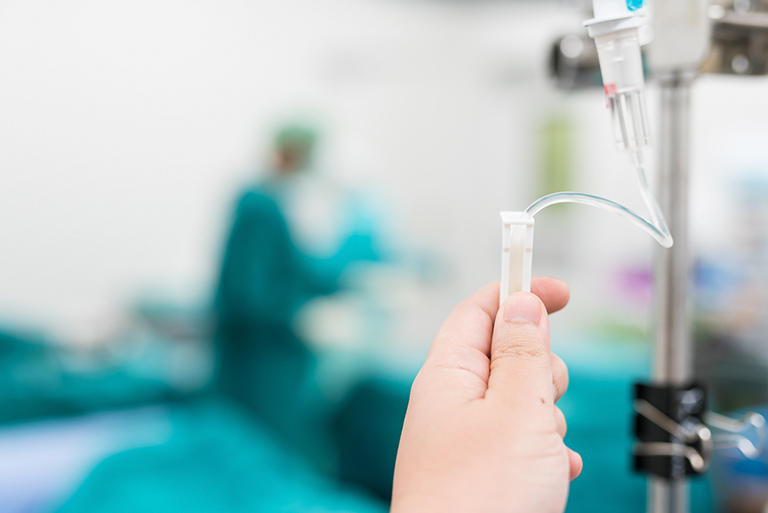
How Does Chemotherapy Affect Fertility?
Chemotherapy uses powerful drugs – alone or in combination – to kill cancer cells, shrink tumors, and/or stop the disease from spreading to other parts of the body. The drugs may be administered in pill or liquid form, as an injection, or intravenously. Chemotherapy may be used with surgery or radiation as part of a patient’s treatment plan.
In addition to killing cancer cells, unfortunately, these powerful drugs also can kill healthy cells throughout the body, including egg and sperm cells. They may also affect the genetic makeup of these cells.
Factors Influencing Risk
It is difficult to know exactly how, and to what extent, fertility will be impaired by chemotherapy. Several factors influence the risk that infertility will occur, which makes it challenging to predict what the fertility outcome will be for an individual patient.
Drug Type
Some types of chemotherapy drugs take a stronger toll on fertility than others. Alkylating agents tend to be the most toxic. These drugs include:
- busulfan
- carmustine
- chlorambucil
- cyclophosphamide
- lomustine
- mechlorethamine
- melphalan
- procarbazine
Dose and Duration
Dosage and treatment durations can also impact a patient’s fertility. Generally, higher doses and longer duration’s tend to do more damage.
For women, because they have a fixed supply of eggs, age is a significant factor. Fertility in younger women, who have a larger pool of eggs, may be able to withstand stronger doses and longer treatment duration’s when compared to older women. Females who have chemotherapy before puberty might regain their ovarian function as adults.
For men, because they continue to produce sperm over their lifetime, the damage to their sperm may be temporary. Unless his sperm-producing cells are also damaged, a man may regain his ability to produce healthy sperm. If this is going to occur, it usually happens within a few years of the completion of treatment.
Resources
- American Cancer Society;“Questions about chemotherapy”;(Last medical review: March 25, 2013); http://www.cancer.org/treatment/treatmentsandsideeffects/treatmenttypes/chemotherapy/whatitishowithelps/chemo-what-it-is-questions-about-chemo
- American Society of Clinical Oncology (ASCO);“Fertility Concerns and Preservation for Men”;(Reviewed and approved: March 2014);http://www.cancer.net/coping-and-emotions/sexual-and-reproductive-health/fertility-concerns-and-preservation-men
- Fertility Concerns and Preservation for Women”;(Reviewed and approved: March 2014);http://www.cancer.net/coping-and-emotions/sexual-and-reproductive-health/fertility-concerns-and-preservation-women
- MD Anderson Cancer Center;“Preserving Fertility Before Treatment”;http://www.mdanderson.org/patient-and-cancer-information/cancer-information/cancer-topics/detection-and-diagnosis/preserving-fertility/index.html
- OncoLink (Penn Medicine);Vachani, Carolyn, RN, MSN, AOCN;“Female Fertility and Cancer Treatment”;(Last modified: October 6, 2006); http://www.oncolink.org/coping/article.cfm?c=534&id=990
- OncoLink (Penn Medicine);Vachani, Carolyn, RN, MSN, AOCN;“Male Fertility and Cancer Treatment”;(Last modified: October 6, 2006); http://www.oncolink.org/coping/article.cfm?id=992&aid=1496
- Up to Date;Hayes, Francis J. MD and Glenn J. Bubley, MD;“Effects of cytotoxic agents on gonadal function in adult men”;(Last updated: September 2, 2014);http://www.uptodate.com (access by subscription only)